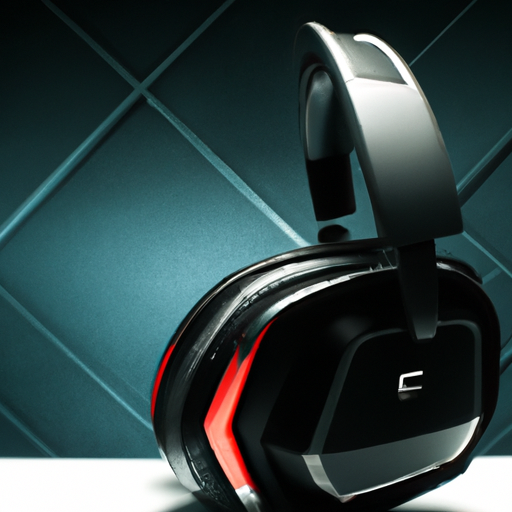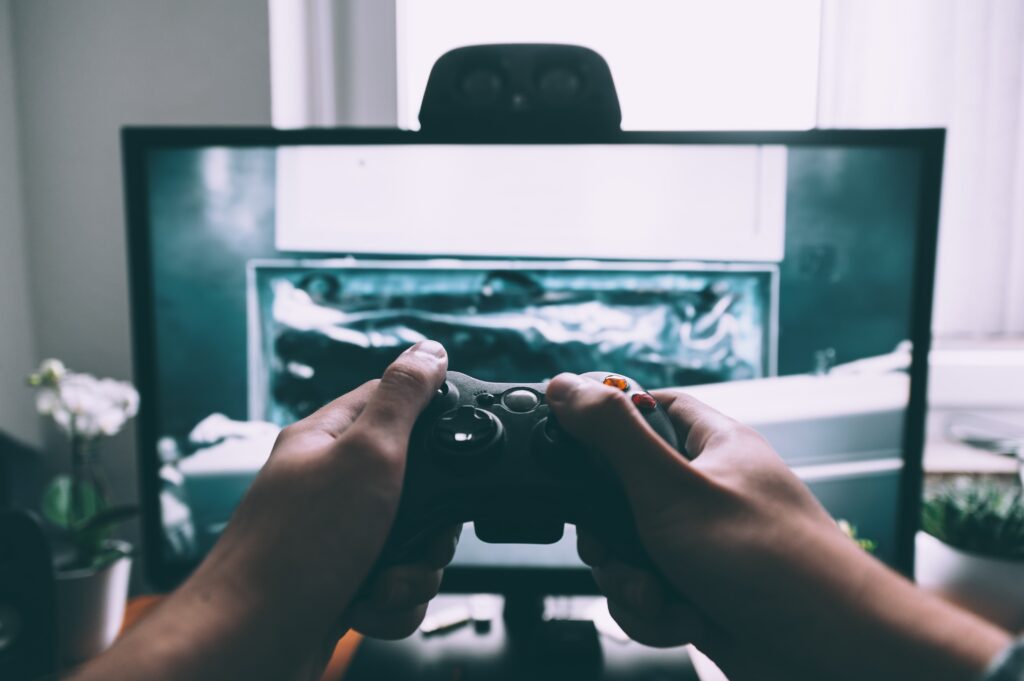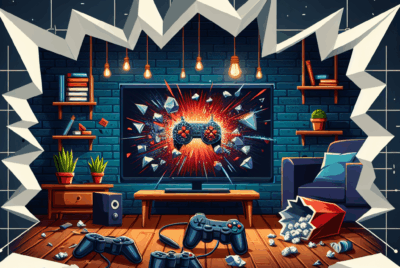How To Reduce Lag In Online Gaming? 30 Awesome Strategies
In the world of online gaming, lag is one of the biggest frustrations for gamers everywhere. It disrupts the flow of gameplay, causes delays in reactions, and ultimately hinders the overall experience. But let’s take a look at the question, “How to reduce lag in online gaming” because there are ways to combat this common issue and achieve a smoother gaming experience. By optimizing your internet connection, adjusting in-game settings, and considering hardware upgrades, you’ll be well on your way to reducing lag and conquering the virtual battlefield. So grab your controller and get ready to level up your gaming performance!
Optimize your internet connection
Online gaming requires a fast and stable internet connection to ensure smooth gameplay. Here are some steps you can take to optimize your internet connection for a better gaming experience.
Upgrade your internet package
One of the first things you can do to improve your online gaming experience is to upgrade your internet package. Different packages offer varying speeds, and opting for a higher-speed plan can significantly reduce lag and latency issues. Contact your internet service provider to explore the available options and choose a package that suits your gaming needs.
Connect via Ethernet cable
While Wi-Fi is convenient, it may not provide the same level of stability and speed as a wired connection. To reduce latency and improve your gaming performance, consider connecting your computer or gaming console directly to your modem or router using an Ethernet cable. This wired connection can minimize packet loss and ensure a more reliable connection during intense gaming sessions.
Close bandwidth-consuming apps
If you’re experiencing lag while gaming, it could be because other applications on your computer or devices are consuming too much bandwidth. Close any bandwidth-intensive apps such as file-sharing programs, streaming services, or downloads while gaming. By freeing up bandwidth, you can allocate maximum resources to your online gaming, reducing lag and improving your overall gaming experience.
Use a wired connection instead of Wi-Fi
While Wi-Fi is convenient for most daily activities, it may introduce higher latency and interference when it comes to online gaming. If possible, consider using a wired connection for your gaming setup. This direct connection can minimize latency and offer a more stable network connection, reducing lag and providing a smoother gaming experience.
Improve your computer’s performance
To optimize your gaming experience, it’s essential to ensure that your computer is running at its best. Here are some steps you can take to improve your computer’s performance for online gaming.
Upgrade your hardware
If your computer is struggling to keep up with the demands of modern games, upgrading your hardware can significantly enhance your gaming experience. Consider upgrading components such as your graphics card, processor, and RAM to meet the recommended specifications of your favorite games. A more powerful hardware setup can handle the graphical demands of games more efficiently, reducing lag and providing smoother gameplay.
Close unnecessary programs and processes
Running multiple programs and processes in the background can consume valuable system resources, leading to lag and slowdowns in games. Before starting a gaming session, close any unnecessary programs and processes running on your computer. This will free up system resources and ensure that your computer can focus on delivering optimal gaming performance without any unnecessary background distractions.
Reduce graphical settings
If you’re experiencing lag, one quick way to improve your gaming performance is to lower the graphical settings in your games. High-quality graphics can put a significant strain on your computer’s hardware, causing lag and slowdowns. By reducing the graphical settings to a more moderate level, you can ease the load on your hardware and ensure smoother gameplay with reduced lag.
Install the latest drivers
Outdated drivers can cause performance issues and compatibility problems, leading to lag in games. Regularly check for updates for your computer’s drivers, including graphics card drivers, chipset drivers, and network drivers. Manufacturers often release driver updates to optimize compatibility and improve performance. Installing the latest drivers can help reduce lag and ensure that your computer is running smoothly for online gaming.

Choose the right gaming server
The choice of gaming server can have a significant impact on your online gaming experience. Here are a few factors to consider to help you choose the right gaming server.
Select servers with low latency
Latency, also known as ping, is the measure of the time it takes for data to travel from your computer to the game server and back. Higher latency can lead to lag, delays, and unresponsiveness in online games. When choosing a gaming server, select one that offers low latency to minimize lag and ensure a smoother gaming experience. Many games provide a list of available servers along with their respective latencies, allowing you to make an informed decision.
Avoid overcrowded servers
Popular games often have servers that become overcrowded, leading to increased latency and degraded game performance. When selecting a server, try to avoid ones that are consistently overcrowded. Look for servers with fewer players or opt for less popular game modes to ensure a smoother and more responsive gaming experience. Avoiding overcrowded servers can help reduce lag and improve gameplay overall.
Optimize in-game settings
In addition to optimizing your hardware and internet connection, tweaking the in-game settings can further enhance your gaming experience. Here are some settings to consider adjusting for reduced lag.
Lower graphics quality
Lowering the graphics quality settings in your games can significantly impact performance and reduce lag. Adjust options such as texture quality, shadow quality, and particle effects to a level that balances visual fidelity and performance. By reducing the graphics quality, you can alleviate the strain on your hardware and ensure a more fluid gaming experience.
Reduce screen resolution
If your computer is struggling to handle the demands of a particular game, reducing the screen resolution can help improve performance and reduce lag. Lowering the resolution decreases the number of pixels your computer needs to render, allowing it to process the game more smoothly. Experiment with different resolutions to find the optimal balance between visual clarity and performance.
Disable vertical sync (VSync)
Vertical sync, or VSync, synchronizes the frame rate of your game with your monitor’s refresh rate. While this can avoid screen tearing, it can introduce input lag and impact performance, resulting in lag. Consider disabling VSync in your game settings to reduce input lag and potentially improve your gaming experience. However, be aware that disabling VSync may cause screen tearing, which some players find distracting.
Turn off unnecessary effects
Some games include various visual effects that can impact performance and introduce lag. Consider turning off unnecessary effects such as motion blur, depth of field, or ambient occlusion in your game settings. Disabling these effects can free up system resources and enhance the overall smoothness of gameplay.

Use a wired controller or keyboard
To further reduce input delay and enhance your gaming responsiveness, consider using a wired controller or keyboard instead of wireless alternatives.
Reduce input delay with a wired controller
While wireless controllers offer convenience, they can introduce input delay due to wireless signal processing. To minimize input delay, consider using a wired controller. The direct connection between your controller and your device can eliminate the latency caused by wireless transmission and ensure a more immediate response in your games.
Avoid wireless keyboards with latency issues
Like wireless controllers, wireless keyboards can introduce input delay, impacting your gaming performance. If you’re experiencing lag or delays in your keyboard inputs, consider using a wired keyboard instead. By eliminating wireless communication, you can avoid any potential latency issues and ensure that your inputs are registered promptly during gameplay.
Consider a gaming VPN
A gaming VPN, or virtual private network, can provide additional benefits for online gaming. Here’s how it can help optimize your gaming experience.
Use a VPN with optimized gaming servers
Some VPN services offer specialized gaming servers that are optimized for low latency and high-speed connections. By connecting to these servers, you can potentially reduce lag and improve your overall gaming performance. Look for VPN providers that explicitly mention gaming optimization to take advantage of their dedicated gaming servers.
Reduce network congestion
A gaming VPN can route your internet traffic through optimized servers, potentially reducing network congestion and improving your connection stability. By avoiding crowded network routes, you can experience smoother gameplay with reduced lag and fewer connection issues.
Protect against Distributed Denial of Service (DDoS) attacks
DDoS attacks can disrupt your online gaming experience by overwhelming your network with a flood of traffic. A gaming VPN can help protect against DDoS attacks by masking your IP address and encrypting your internet traffic. This added security can ensure a more stable connection and protect you from malicious attacks that can cause lag and interruptions in your gaming sessions.

Close background applications
Background applications can consume system resources, affecting your computer’s performance and causing lag in online games. Here’s how you can manage background applications to optimize your gaming experience.
Check for resource-intensive apps
Before starting your gaming session, check for resource-intensive applications running in the background. Task Manager or Activity Monitor can help you identify which applications are using significant amounts of CPU, memory, or network resources. Consider closing unnecessary applications to free up system resources and ensure a smoother gaming experience with reduced lag.
Disable automatic updates
Automatic software updates can run in the background, consuming bandwidth and system resources while you’re gaming. To minimize interruptions and potential lag, consider disabling automatic updates for your operating system, games, and other software. Instead, schedule updates during non-gaming hours or manually initiate them when you’re not actively playing.
Use a game booster to optimize processes
Game boosters are software applications specifically designed to optimize your computer’s performance for gaming. These programs can help prioritize system resources for your game, close unnecessary processes running in the background, and tweak various settings for improved performance. Consider using a reputable game booster to help streamline your computer’s resources and reduce lag during gameplay.
Manage network bandwidth
When multiple devices are connected to your network, they compete for bandwidth, potentially causing lag in online games. Here’s how you can manage network bandwidth to prioritize your gaming traffic.
Prioritize gaming traffic
Some routers offer Quality of Service (QoS) settings, allowing you to prioritize certain types of internet traffic, such as gaming. By enabling QoS and prioritizing gaming traffic, you can ensure that your gaming data packets receive priority over other non-essential traffic. This can result in reduced lag and a more stable gaming experience, even with other devices using your network.
Limit bandwidth usage of other devices
If other devices connected to your network are consuming significant bandwidth, it can affect your gaming performance. Consider limiting the bandwidth usage of these devices or scheduling their usage during non-gaming hours. This will ensure that a larger portion of your network’s resources is available for your gaming needs, minimizing lag and improving gameplay.

Optimize router settings
Your router plays a crucial role in determining the quality of your internet connection during gaming. Here are some tips to optimize your router settings for a better gaming experience.
Upgrade your router’s firmware
Manufacturers frequently release firmware updates for their routers, which can address performance issues, improve security, and provide other optimizations. Check for any available firmware updates for your router model and install them to ensure you have the latest features and enhancements. Upgrading your router’s firmware can help improve stability, reduce lag, and enhance your overall gaming experience.
Enable Quality of Service (QoS)
Quality of Service (QoS) is a feature available on many routers that allows you to prioritize specific types of internet traffic over others. By enabling QoS and configuring it to prioritize gaming traffic, you can ensure that your gaming data receives priority over other less critical traffic on your network. This can reduce lag and provide a smoother online gaming experience.
Set up port forwarding
Port forwarding is a technique used to redirect specific network traffic to a particular device on your network. For online gaming, it can help establish a direct connection between your gaming device and the game server, potentially reducing lag and improving connection stability. Consult your router’s manual or manufacturer’s website for instructions on how to set up port forwarding specific to your router model.
Reduce network interference
Network interference can disrupt your internet connection and lead to lag in online games. Here are some steps you can take to minimize network interference and improve your gaming experience.
Keep your router away from other electronic devices
Other electronic devices, such as cordless phones, baby monitors, or microwave ovens, can interfere with your Wi-Fi signal and cause instability. To reduce interference, place your router in a central location away from these devices. This will allow for a clearer signal and enhance your Wi-Fi performance during gaming.
Use a dual-band router
Dual-band routers support both 2.4 GHz and 5 GHz frequencies, providing greater flexibility and potentially reducing network interference. While the 2.4 GHz band offers a wider coverage area, it is more prone to interference from other devices. The 5 GHz band, although shorter in range, typically experiences less interference. Consider using the 5 GHz band for gaming to minimize interference and improve your overall gaming performance.
Minimize Wi-Fi signal obstruction
Physical obstacles such as walls, furniture, or appliances can weaken your Wi-Fi signal and result in a less stable connection. To minimize signal obstruction, ensure that your router has a clear line of sight to your gaming device. If necessary, adjust the router’s position or use Wi-Fi range extenders to enhance the signal strength in areas where you typically engage in online gaming.
By following these optimization techniques, you can significantly reduce lag, improve your gaming performance, and enhance your overall online gaming experience. Remember to regularly update any relevant software, hardware, or network settings to ensure that you’re always gaming at your best. Happy gaming!

Conclusion: Overcoming Latency and Elevating Your Gaming Experience
In the dynamic world of online gaming, the quest for victory is often dictated by split-second decisions and lightning-fast reactions. The pursuit of excellence, however, can be hampered by a persistent adversary: lag. As we’ve embarked on this journey to understand and conquer the challenges of reducing lag in online gaming, we’ve uncovered an array of strategies and insights that promise to transform your gaming experience into an uninterrupted and exhilarating adventure.
Lag, that dreaded disruption that introduces delays between your actions and their manifestation on the screen, has been dissected, demystified, and disarmed. We’ve delved into the technological intricacies of network latency, identifying factors from internet speed to routing inefficiencies that contribute to this nemesis. Armed with knowledge, you’re now equipped to take the driver’s seat in optimizing your network configuration, be it through a wired connection, upgrading your internet plan, or optimizing your router settings.
Our exploration led us to the realm of hardware and software optimization, where the power of your gaming rig plays a crucial role. From updating drivers and firmware to ensuring your system’s resource allocation aligns with your gaming pursuits, we’ve unveiled a trove of tactics to ensure your hardware works in harmony, eradicating the roadblocks that latency seeks to impose.
Peer into the world of server selection, where geographical proximity and server load determine your digital battlefield. Armed with the knowledge of server locations and your gameplay preferences, you now possess the wisdom to choose servers that deliver optimal performance, minimizing the lag that could tarnish your gaming exploits.
Furthermore, we’ve unmasked the hidden power of Quality of Service (QoS) settings, where the magic of traffic prioritization ensures that your gaming data takes the express lane, sidestepping bandwidth-hogging applications that may otherwise clog the virtual arteries.
Yet, as we conclude this odyssey, it’s important to recognize that reducing lag isn’t just about technical prowess; it’s about embracing a mindset of excellence. It’s about nurturing an environment where your gaming endeavors are met with the least possible resistance, allowing you to focus on your strategy, skill, and camaraderie with fellow gamers.
So, whether you’re navigating the intricate worlds of fantasy RPGs, engaging in heart-pounding battles in first-person shooters, or orchestrating your empire’s ascent in real-time strategy games, the tools and insights unveiled here empower you to reclaim your gaming destiny.
As you venture back into the realm of online gaming, equipped with a refined network setup, optimized hardware, and a newfound awareness of the factors influencing latency, remember that the journey to reduced lag is an ongoing quest. Technology evolves, gaming landscapes shift, and your journey continues. Embrace each challenge as an opportunity, each triumph as a milestone, and each uninterrupted moment of gameplay as a testament to your dedication and mastery.
Lag may have once been a formidable adversary, but armed with knowledge and resolve, you’ve transformed it into a conquerable obstacle. May your online gaming endeavors be swift, seamless, and filled with the thrill of victory, unencumbered by the shackles of lag. Onward, brave gamer, to a realm of unbounded possibilities and lag-free adventures!




